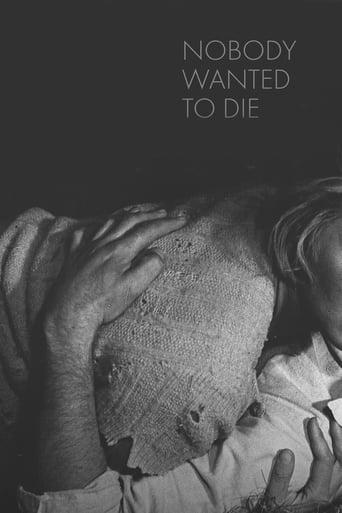The film is set in Lithuania after the Second World War. It shows dramatic events in a small Lithuanian farming community, where people are split between the Soviets and the "brothers in the woods", who are fighting to defend their land from the Soviets after the end of the Second World War.
"Niekas nenorėjo mirti" (1965), a poignant cinematic work produced by the Lithuanian Film Studio during the Soviet era, stands as a testament to the complexities of human nature and the brutal realities of war. Directed by Vytautas Žalakevičius, the film delves into the tumultuous period of World War II, focusing on the struggle between Lithuanian partisans and Soviet forces. The narrative unfolds in a small village, where the local inhabitants are caught in the crossfire of conflicting ideologies and loyalties. Through its compelling storytelling and stark portrayal of the human condition, the film captures the essence of a nation torn apart by external forces and internal strife. The film's title, which translates to "Nobody Wanted to Die," encapsulates the universal desire for peace amidst the chaos of war. Žalakevičius masterfully explores the moral ambiguities faced by the characters, as they navigate the treacherous landscape of survival and resistance. The protagonist, a partisan leader, embodies the struggle for freedom and the heavy burden of leadership, while the villagers represent the diverse spectrum of human responses to oppression. The film's nuanced character development and realistic depiction of wartime dilemmas make it a powerful reflection on the cost of conflict and the resilience of the human spirit. Cinematographically, "Niekas nenorėjo mirti" is notable for its use of black and white film, which enhances the somber mood and underscores the gravity of the events depicted. The stark visual contrast mirrors the moral and ethical dichotomies faced by the characters, adding depth to the narrative. The film's setting in rural Lithuania provides a backdrop that is both beautiful and haunting, reflecting the duality of life and death that permeates the story. The cinematography, combined with the evocative score, creates an immersive experience that draws viewers into the heart of the conflict. Despite being produced under the constraints of Soviet censorship, "Niekas nenorėjo mirti" manages to convey a message of hope and resilience. The film's international acclaim, including its screening at the Cannes Film Festival, highlights its universal appeal and enduring relevance. It serves as a reminder of the power of cinema to transcend political boundaries and speak to the shared human experience. Through its exploration of themes such as loyalty, betrayal, and the quest for freedom, "Niekas nenorėjo mirti" remains a significant work in the canon of Lithuanian and Soviet cinema.
Year1965
Runtime107 media.min
Watch online
GenresDramaActionHistoryWestern
Production countriesSoviet Union

